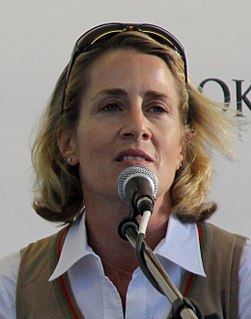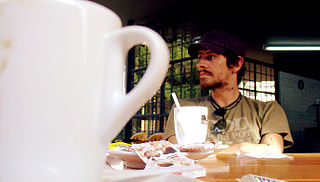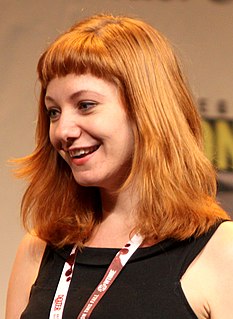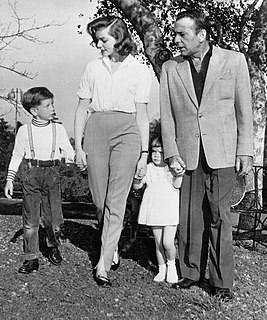A Quote by Cecily von Ziegesar
My biggest fear in writing 'Gossip Girl' was that the characters would sound like stereotypical rich, air-headed heiresses. These were my friends. They were smart and multifaceted. They had interests and passions. They wanted to become lawyers and doctors and writers and filmmakers.
Related Quotes
I've tried really hard to care about things that were very different from my parents. I was curious if I could care about [money] on some fundamental level, and I couldn't. That wasn't the metric of success I wanted in my life. I've talked about this to my friends who are doctors and whose parents are doctors, or who are lawyers and their parents are lawyers. It's a funny thing to realize I feel called to this work both as a daughter and also as someone who believes I have contributions to make.
When writers are self-conscious about themselves as writers they often keep a great distance from their characters, sounding as if they were writing encyclopedia entries instead of stories. Their hesitancy about physical and psychological intimacy can be a barrier to vital fiction. Conversely, a narration that makes readers hear the characters' heavy breathing and smell their emotional anguish diminishes distance. Readers feel so close to the characters that, for those magical moments, they become those characters.
It had long been true, and prisoners knew this better than anyone, that the poorer you were the more likely you were to end up in jail. This was not just because the poor committed more crimes. In fact, they did. The rich did not have to commit crimes to get what they wanted; the laws were on their side. But when the rich did commit crimes, they often were not prosecuted, and if they were they could get out on bail, hire clever lawyers, get better treatment from judges. Somehow, the jails ended up full of poor black people.
So the fact that there's someone who's planning what happens to the characters, writing it down, means that the characters always have a fate. And when we think about fate, we tend think of it as the thing we would have if we were literary characters, that is, if there were somebody out there, writing us.
There was a period of a few months, however, when I had a dreadful physical pain. I had just started writing a particular section of the novel and was initially worried that it would affect my work. I was woken by awful nightmares; I saw several doctors, tests were performed, nothing came of them, and the medics were mystified.It was two days after I finished writing the section that the penny dropped. The pain had suddenly disappeared and so too had the nightmares. I'd got things muddled. The pain and the nightmares were both psychosomatic.



































